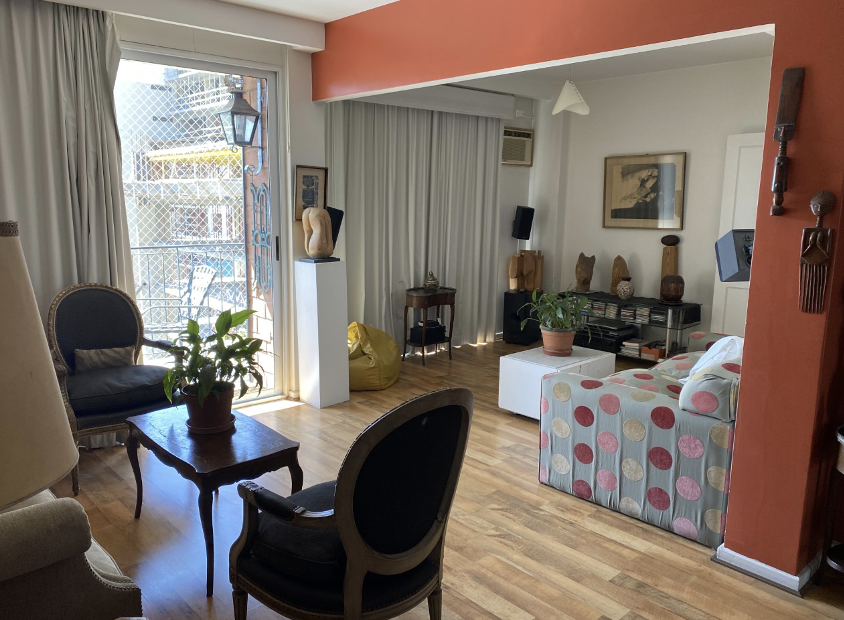5 Things You Should Know About Living With a Host


While the idea of living with an unknown family in a remote country may sound frightening at first, it can become an amazing experience and create a memorable study abroad journey. Like most people, I had nerves about my homestay since I would be living with the family for a long period. These nerves continued until I arrived in Buenos Aires, Argentina. I did not know much about my host mother. Therefore, I was afraid we would have an awkward encounter or not bond immediately. However, once I arrive the woman greeted me with such a huge smile and a lovely embrace! This gesture quickly made me feel welcomed and comfortable. I have been living with the woman for a month now, and although we have had a few bumps, we are now getting along very well. Therefore, I hope to share recommendations and stories about my personal homestay experience. So here are five things you should know about living with a host family:
1. Housing Form
After you are accepted to your study abroad program, there will be a housing form you will need to complete. Here you will need to describe yourself and your ideal homestay so your program can pair you with a family that will be compatible. I was unsure what to include and how to describe my expectations for a family. I wished I had described myself more in depth. In the form I shared simple characteristics about myself such as being timid, kindhearted, and organized. I wish I mentioned that I enjoy exploring unfamiliar places just as much as staying indoors. Other important facts I should have shared was that I could not cook and I love being around animals. Therefore, my suggestion would be to describe in detail various aspects of yourself and be genuine with your interests and hobbies. Also do not be afraid to share type of household you are accustomed to. The host families also read these applications and it is another way in they can learn more about you!

2. Bring a small token of appreciation
A good recommendation is to bring your host family a small token of appreciation for their hospitality and kindness. However, like most people, I was not sure what to bring. After much consideration I finally decided to bring three different items for my host family. First, I bought a coffee mug designed with distinct locations of Chicago. I decided to bring this gift because I knew Argentinos drink a lot of coffee/tea and I am from Chicago. I also purchased a beautiful spoon rest for her to have a practical item in her home. Lastly, I decided to bring chocolates since I wanted a delectable and sweet gift for her. While you do not need to bring many gifts, it is a nice idea to bring one. I suggest bringing items that share a part of yourself with your host family. You can also bring souvenirs from your city, objects for decoration, things that the host family can utilize, or items that help start a conversation.
3. Know the rules!
During the first few days of your arrival, it is recommended to discuss important rules and information with your host family. During our first dinner, the woman kindly communicated the logistics and rules of the house. She shared how meals would work, her expectations, how to enter the building, etc. I asked her if there was anything I could do to make her more comfortable with my stay as well. Therefore, I recommend discussing topics that will create a respectful and tranquil homestay, such as asking about curfews and your responsibilities around the house. During the conversation we also arrived at issues but later came to a consensus on the problems. For example, I asked her if I could take night showers and listen to music while showering. Since we lived in an apartment, and my bathroom was next to her room, we agreed that I could listen to music in the shower during the day but not at night. Ergo, I advise to empathetically communicate with your host family and do not be afraid to compromise with each other.
4. Difficult discussions
As mentioned before, there may be times when problems or complications may emerge. Partaking in difficult conversations with your host families may be inevitable, and the important part is to always remain compassionate and understanding. One miscommunication I had was about the number of meals that needed to be provided. She believed she had to provide two meals a day. I tried to explain that IFSA agreed to have three meals provided, but was skeptical. Unfortunately, we discussed this issue three times, but never came to a consensus. It became to the point where I had to email the director of IFSA to address these errors and luckily everything was resolved. While these conversations were tough, it permitted us to be understanding and communicative with each other. Now we constantly check in with each other about how were both feeling and anything we can do to make each other comfortable.

5. Keep an open line of communication
As previously mentioned, I needed to discuss a misunderstanding with my host mother which created an open line of communication with her. If there is something wrong or something I appreciate, I share that with her. The misunderstanding taught us to be honest with each other. The amount of openness and communication depends on both the student and the family. There are some host families I know that want to be very involved in the student’s lives and there are others who let the student be very independent. This is another idea I would suggestion to mention in your housing form and be attentive when living with your host family. Thus, it is important to keep an open line of communication with your host family from the beginning and attempt to check in with each other during your time abroad.
Leslie M. | Psychology and Human Rights major | Trinity College Connecticut | IFSA Study in Buenos Aires: Psychology & Neuroscience | Spring 2022